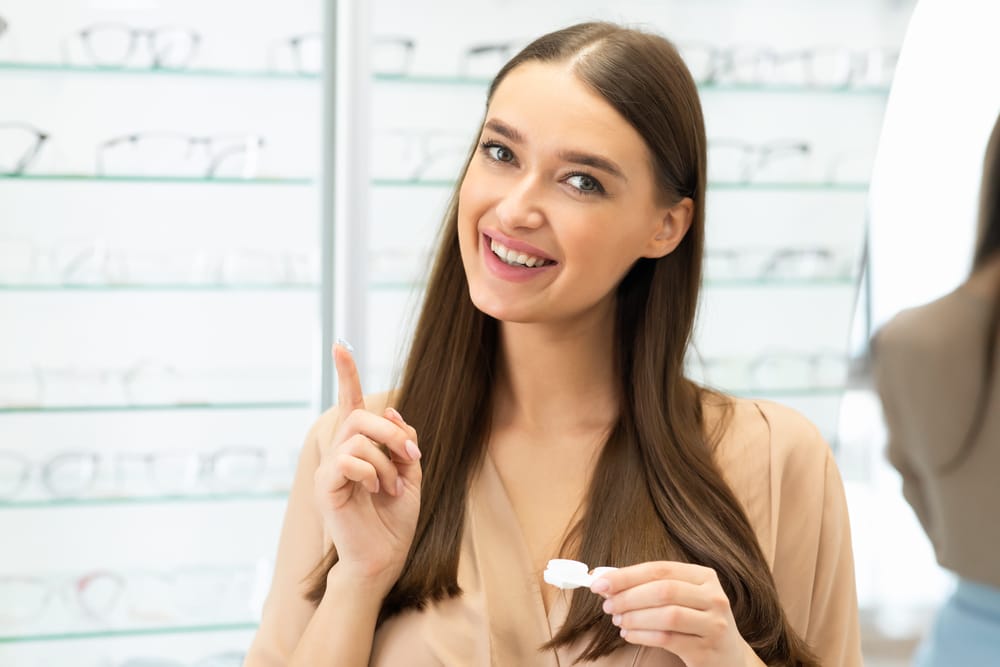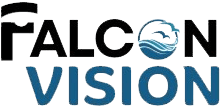Welcome to Falcon Vision, where we provide exceptional contact lens and specialty services tailored to your unique vision needs. Dr. Billy Mendoza, OD understands that finding the right contact lenses can significantly improve your quality of life. Whether you’re new to contacts or seeking specialty lenses for complex vision conditions, we’re committed to helping you see clearly and comfortably with solutions that fit your lifestyle.
Contact Lens and Specialty
Understanding Contact Lens and Specialty
Contact lenses have evolved dramatically over the years, offering solutions for nearly every vision condition and lifestyle need. Unlike standard contact lenses, specialty contacts are designed to address specific vision challenges such as astigmatism, presbyopia, keratoconus, and severe dry eye. These advanced lenses use cutting-edge technology to provide comfort and clarity where traditional options may fall short.


Benefits of Contact Lens and Specialty
Our Contact Lens and Specialty Process
- Complete Eye Assessment
- Personalized Lens Selection
- Fitting and Training
- Lens Care Education
- Ongoing Support
Complete Eye Assessment
Your experience begins with a thorough eye examination with Dr. Billy Mendoza, OD, who will evaluate your eye health, vision needs, and lifestyle requirements. During this appointment, we’ll discuss your history with contacts, any challenges you’ve faced, and your expectations for new lenses. We’ll take precise measurements of your eyes using advanced technology to assess the unique shape of your cornea. This detailed information helps us determine which specialty contact lens options might work best for your specific situation.
Personalized Lens Selection
Based on your assessment, we’ll develop a personalized contact lens plan tailored to your unique vision requirements and lifestyle. We consider factors such as your prescription, eye shape, tear production, and daily activities to recommend the most suitable lens materials and designs. For specialty needs, we might suggest options like toric lenses for astigmatism, multifocal lenses for presbyopia, or scleral lenses for irregular corneas. We’ll explain the benefits and considerations of each option so you can make an informed decision about your vision care.
Fitting and Training
Once we’ve selected the appropriate contact lenses, we’ll provide a trial pair and comprehensive training on proper insertion, removal, and care techniques. We ensure you feel completely comfortable handling your lenses before you leave our office. For specialty lenses that require precise fitting, we may use advanced mapping technology to custom-design lenses that perfectly match your eye contours. Our team takes the time to answer all your questions and address any concerns during this crucial phase of the process.
Lens Care Education
Proper care of your contact lenses is essential for maintaining eye health and extending the life of your lenses. We’ll provide detailed instructions on cleaning, storing, and replacing your specific type of contacts. For specialty lenses that may require unique care routines, we offer demonstrations and written guidelines to follow at home. We’ll also recommend appropriate contact lens solutions and eye drops that are compatible with your lenses and eye condition to ensure maximum comfort and clarity.
Ongoing Support
Regular check-up appointments allow us to monitor how your eyes are adapting to the new contact lenses and make any necessary adjustments. We recommend scheduled evaluations to ensure your lenses continue to fit properly and your eyes remain healthy. These appointments are especially important for specialty contact lens wearers, as even small changes in fit can impact comfort and vision quality. At Falcon Vision, we’re committed to providing continuous support throughout your contact lens experience to ensure long-term success and satisfaction.

Why Choose Us for Contact Lens and Specialty
At Falcon Vision, we distinguish ourselves through specialized expertise in fitting even the most challenging eyes. Dr. Mendoza has successfully fitted patients who were previously told they couldn’t wear contacts due to complex conditions like keratoconus, extreme astigmatism, and severe dry eye. Unlike retail chains that rush through appointments, we dedicate ample time to understand your specific needs and vision goals.
Our office invests in cutting-edge corneal mapping technology that captures thousands of data points on your eye’s surface, resulting in contact lenses that fit with exceptional precision. This attention to detail makes a noticeable difference—our patients frequently tell us they’ve never seen more clearly or comfortably with contacts before coming to our practice.

Experience Clear Vision Today
Don’t compromise on your vision quality or comfort any longer. The right specialty contact lens solution can transform how you see the world and interact with it. Dr. Billy Mendoza at Falcon Vision has helped hundreds of patients achieve remarkable vision improvement with customized contact lens solutions, and you could be next.
Connect with us today at 775-322-3777 to schedule your comprehensive contact lens evaluation and take a concrete step toward sharper, more comfortable vision that enhances every aspect of your daily life.

FAQs
How to tell if contact lens is still in the eye?
Look straight ahead in a well-lit mirror and gently pull your upper and lower eyelids to expose more of your eye surface. If you can’t see the lens, lightly touch your eye’s surface with a clean fingertip – you’ll feel the lens if it’s present.
Are contact lens prescriptions the same as glasses?
No, contact lens prescriptions include additional measurements such as base curve, diameter, and specific brand or material that aren’t found in eyeglass prescriptions. Contact lenses rest directly on your eye, requiring these extra specifications for proper fit and performance.
How to read contact lens prescriptions?
Your prescription includes power measurements for each eye (OD/OS), base curve (BC), diameter (DIA), and brand name, with negative numbers for nearsightedness and positive for farsightedness. Additional notations might include “toric” for astigmatism or “multi” for multifocal designs, along with an expiration date typically one year from your exam.
Can you use eye drops as a contact lens solution?
Regular eye drops should never be used as a substitute for proper contact lens solution as they lack disinfecting properties. Using improper solutions can lead to serious eye infections and potential corneal damage.
How long can a contact lens last?
The lifespan varies by type: daily disposables last one day, bi-weekly lenses last two weeks, and monthly lenses last 30 days with proper care. Specialty RGP or scleral lenses may last 1-2 years with meticulous maintenance, but all lenses should be discarded immediately if damaged or uncomfortable.

